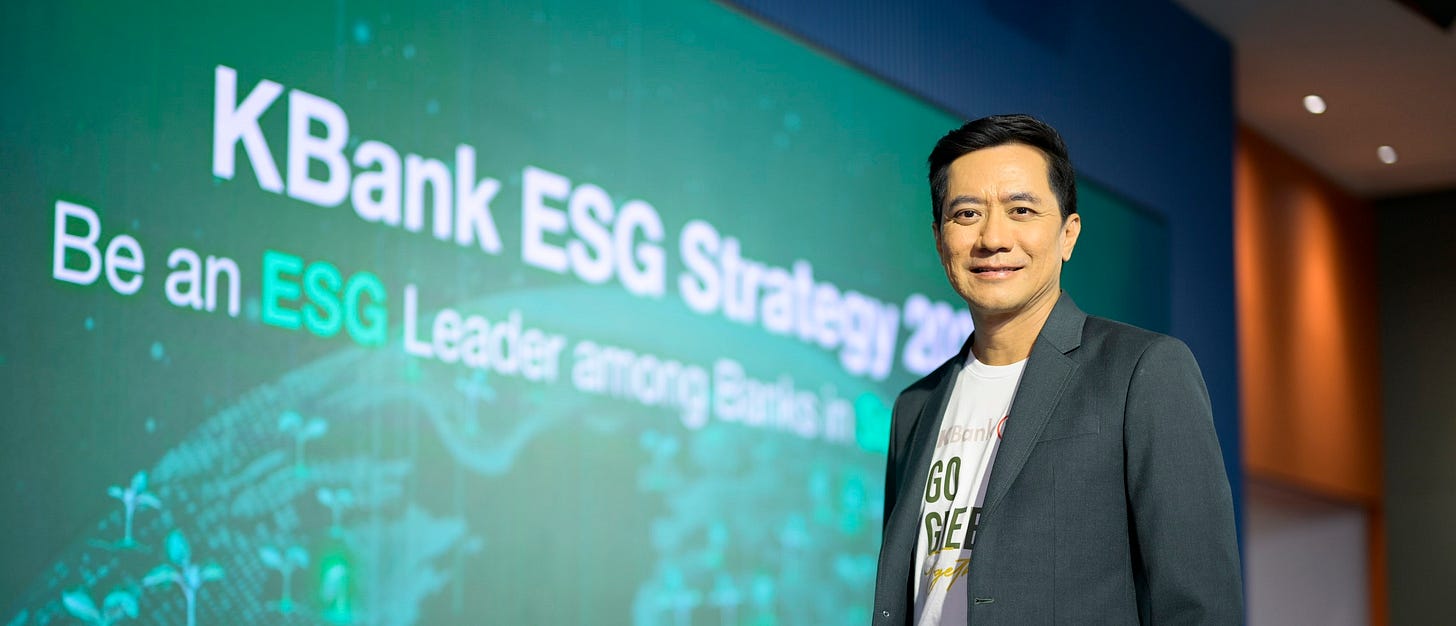Thai Bank Aims to Become ESG Leader in Southeast Asia
Kasikornbank (KBank), Thailand’s second-largest bank is working to empower its customers and Thai businesses in a drive towards a sustainable economic system.
KBank has announced the KBank ESG Strategy 2023 which maps out business strategies based on ESG principles, focusing on systematic operations, evaluation of results and operational development in alignment with international principles and standards.
Determined to be an ESG leader among banks in Southeast Asia, the Bank has reimagined its strategic imperatives while bolstering its customers’ capabilities during the transition to a net zero economy.
In the first half of 2022, greenhouse gas emissions were cut by 13.52% (compared to the base year of 2020). The Bank is committed to achieving net zero in its own operations by 2030.
Among the actions to achieve net zero emissions in KBank’s financed portfolio include evaluation of greenhouse gas emissions in KBank’s loan portfolio and study of feasibility and complexity of adjustment in the context of Thailand for sector prioritisation.
This year KBank has conducted an assessment and formulated the Sector Decarbonization Strategy for three industrial sectors, namely, power generation, oil & gas, and coal, which altogether account for approximately 27% of the Bank’s portfolio emissions.
The bank is now preparing to join forces with customers in other industrial sectors in order to achieve net zero emissions in line with Thailand’s net zero aspirations.
KBank has also unveiled its net zero commitment in its own operations. Among the bank’s major initiatives include the adjustment of operational processes to reduce greenhouse gas emissions, which will see a gradual replacement of the bank’s fleet with EVs, and solar rooftop installation at branch offices owned by KBank.
KBank has also introduced and promoted projects that go beyond financial services to help customers gain easier access to the green lifestyle such as SolarPlus, free solar rooftops for the public, and EV bike rental, which aims to promote the use of electric vehicles and help low-income riders to get jobs.
Krit Jitjang, KBank President, noted, “Of late, more and more businesses worldwide have embraced sustainability. As evidenced, consumers have shown behavioral changes towards ESG-related consumption, while investors are using ESG risk as a key factor in their investment decisions.”
“Moreover, regulators both at home and abroad have implemented ESG-related measures that businesses must comply with. Any businesses failing to adjust now will incur higher costs, whether in terms of investment or expenses for product and service development, which will inevitably jeopardize their competitive capabilities. However, those who can efficiently adjust themselves in step with this trend will benefit from these abounding opportunities,” Jitjang added.
#Kasikornbank #ESG





